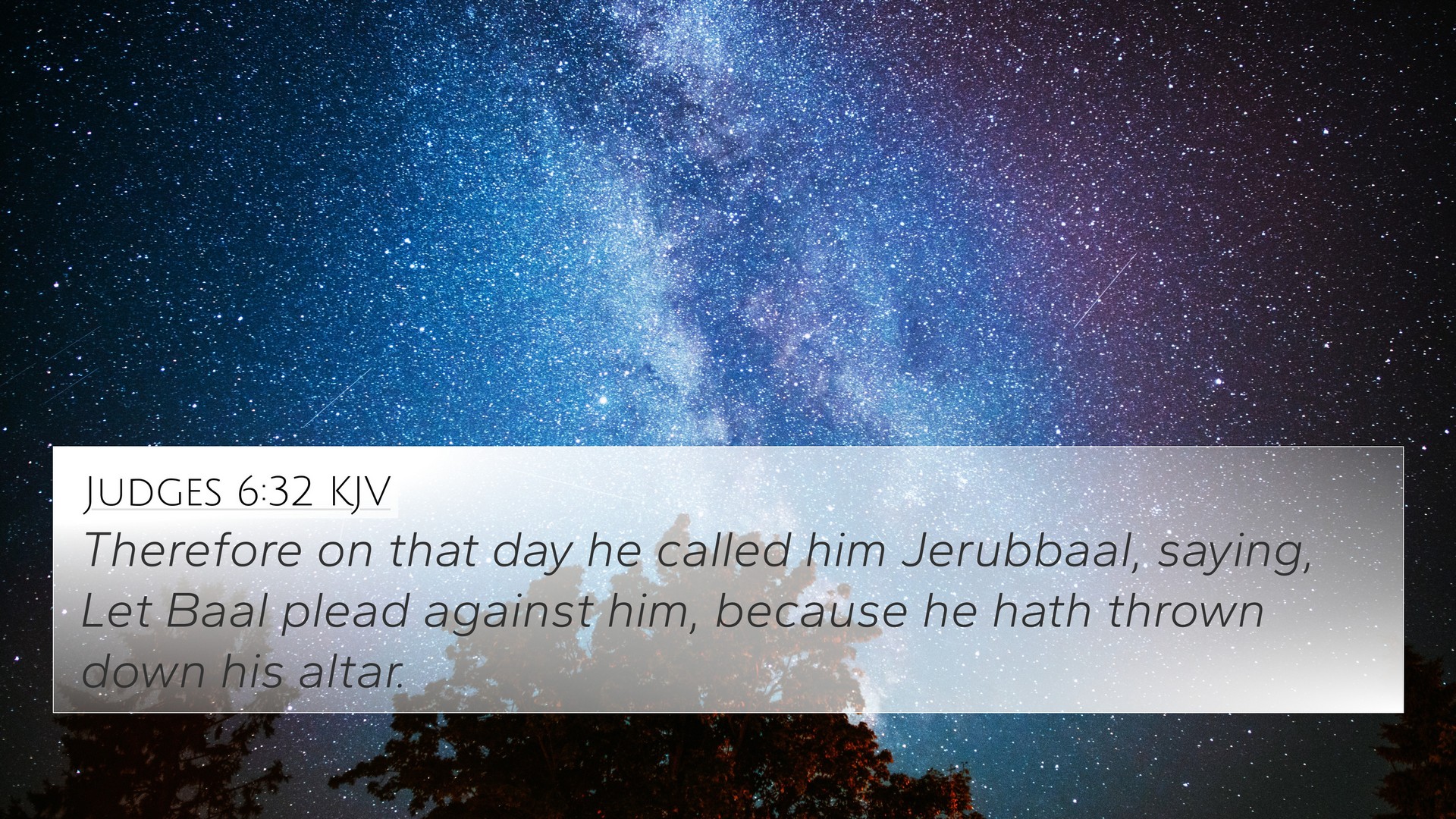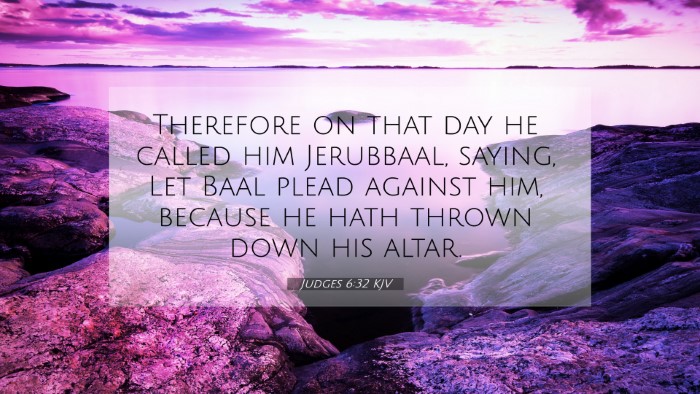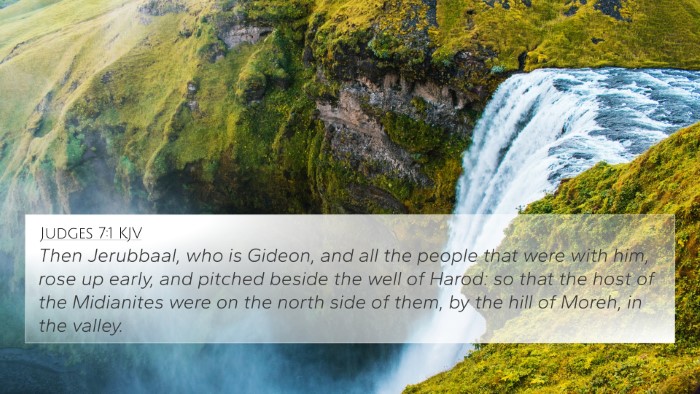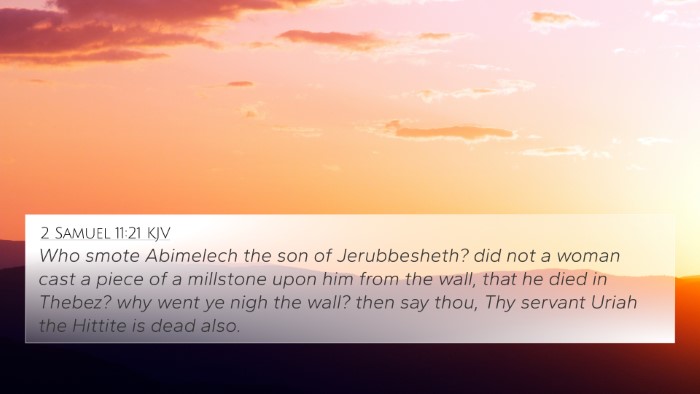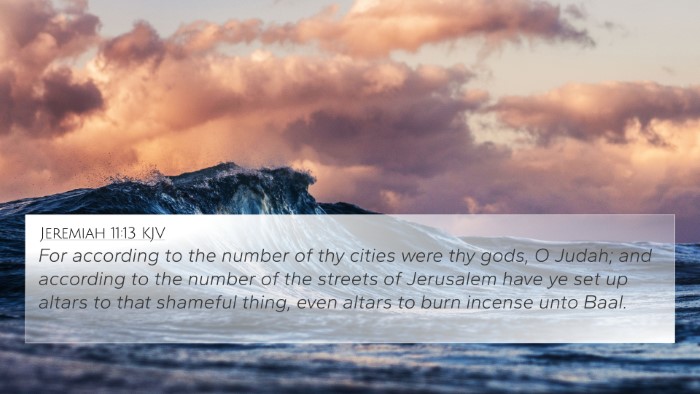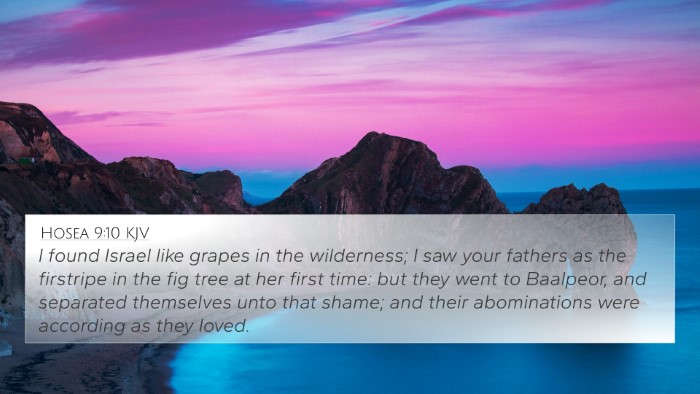Understanding Judges 6:32
Verse: "Therefore on that day he called him Jerubbaal, saying, 'Let Baal contend against him, because he has pulled down his altar.'
Summary of Meaning
Judges 6:32 marks a pivotal moment in the life of Gideon, a key figure in the book of Judges. After Gideon destroyed the altar of Baal, he is given the name Jerubbaal, which translates to "Let Baal contend against him." This signifies both Gideon's action against idolatry and his challenge to the Canaanite gods.
Insights from Public Domain Commentaries
-
Matthew Henry:
Matthew Henry emphasizes the courage of Gideon in executing God's command to destroy the altar of Baal. He interprets the name 'Jerubbaal' as a declaration of defiance against Baal, illustrating that Gideon’s obedience puts him in direct conflict with false gods.
-
Albert Barnes:
Albert Barnes elaborates on the name Jerubbaal, describing it as an indication that Baal, a false deity, should intervene if he is indeed powerful. This act demonstrates Gideon’s faith in Yahweh and his belief that the true God will defend him against the wrath of Baal's devotees.
-
Adam Clarke:
Adam Clarke notes the significance of names in the Hebrew culture and how they often carry prophetic implications. He highlights that Gideon's new name symbolizes a challenge to the legitimacy of Baal worship, setting the stage for his later victories over the Midianites.
Bible Verse Cross-References
To gain a deeper understanding of Judges 6:32, we can look at the following cross-references:
- 1 Kings 18:21 - Elijah's challenge to the prophets of Baal.
- Exodus 20:4-5 - The command against idol worship.
- Jeremiah 2:5 - God questions Israel's pursuit of worthless idols.
- Psalm 96:5 - The futility of idols compared to Yahweh.
- Judges 2:13 - The Israelites' abandonment of the Lord for Baal.
- Galatians 5:17 - The opposition of the flesh and spirit.
- Matthew 6:24 - The impossibility of serving two masters.
Connections Between Bible Verses
Gideon's story exemplifies key themes in the Bible regarding faithfulness to God, the folly of idol worship, and the consequences of disobedience. The name Jerubbaal not only marks Gideon’s personal journey but also engages with broader biblical narratives concerning the struggle between the true God and false deities.
Thematic Bible Verse Connections
The themes of idolatry and God’s sovereignty run through multiple scriptures:
- Idolatry - Isaiah 44:9-20, where the absurdity of idol worship is portrayed.
- God's Defense - Exodus 14:14, where the Lord promises to fight for His people.
- Faith in Adversity - 2 Timothy 1:7, emphasizing the spirit of power and courage in believers.
Tools for Bible Cross-Referencing
Utilizing various tools and resources enhances our understanding of the Bible:
- Bible Concordance - A reference tool for locating any word or phrase.
- Bible Cross-Reference Guide - An invaluable resource for linking related scriptures.
- Cross-reference Bible Study - Methods for thematic exploration.
How to Use Bible Cross-References
To effectively use cross-references:
- Identify key themes in a verse.
- Look for related verses that reinforce or contrast the message.
- Draw connections between Old and New Testament teachings.
Conclusion
Judges 6:32 serves as a reminder of God’s call to faithfulness and the rejection of false idols. By examining this verse through the lens of other scriptures and public commentaries, we gain a fuller understanding of its implications for believers in their faith journey. The narrative of Gideon’s defiance against Baal continues to resonate today, highlighting the ongoing struggle between true worship and idolatry.
